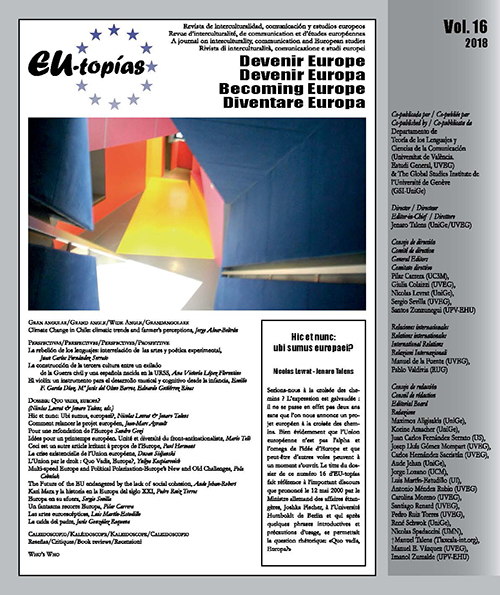Karl Marx and European History in 21st Century
DOI:
https://doi.org/10.7203/eutopias.0.18369Keywords:
Karl Marx, History, End of 20th Century, Beginning of 22st Century Abstract
Abstract
The collapse of communism in Eastern Europe and the USSR, after the fall of the Berlin Wall, led to believe that Marx’s ideas were condemned to oblivion. His way of conceiving history and in general his thought, in the new stage of absolute predominance of liberal democracy, seemed a thing of the past. However, the economic crisis of 2008 brought a return that soon manifested itself, in a striking way, in a growing number of books on Capital and of introductions to his work; in 2018, the year of the bicentennial of his birth, it looks like an authentic resurrection. This article seeks to establish a relationship with the ideas of Marx by taking as a starting point the historical context in which they were elaborated, very different from the 20th Century’s various Marxisms and from the Europe of our day.
 Downloads
Downloads
Downloads
Published
How to Cite
-
Abstract752
-
PDF (Español)137
Issue
Section
License
![]()
The authors conserve the copyright. All content published in EU-topías. Journal of interculturality, Communication, and European Studies are subject to the license Creative Commons Attribution-NonCommercial-ShareAlike 4.0 license. The full text of the license can be found at <http://creativecommons.org/licenses/by-nc-sa/4.0>
They may be copied, used, disseminated, transmitted and publicly displayed, provided that:
- The authorship and original source of the publication is cited (journal, publisher and URL of the work).
- They are not used for commercial purposes.
- The existence and specifications of this license of use are mentioned.
It is the responsibility of the authors to obtain the necessary permissions for images that are subject to copyright.



